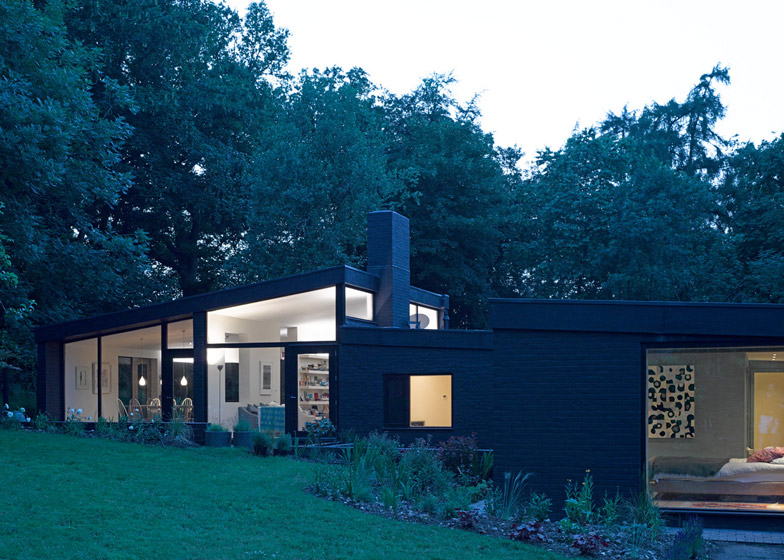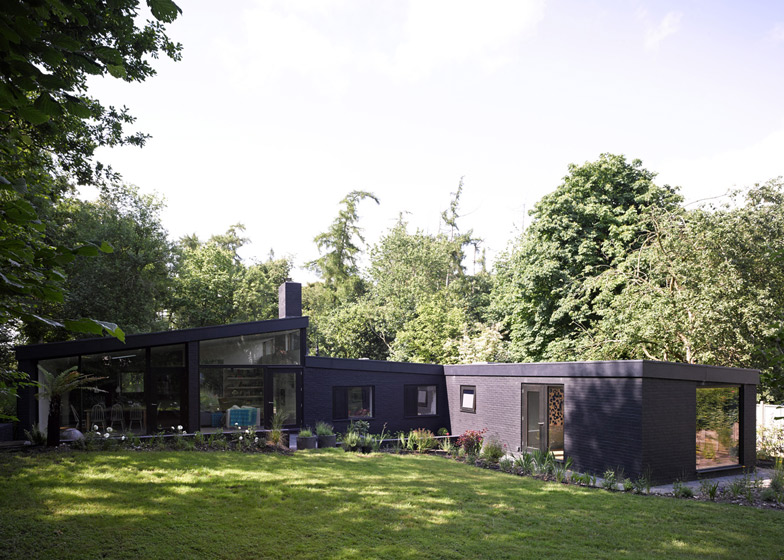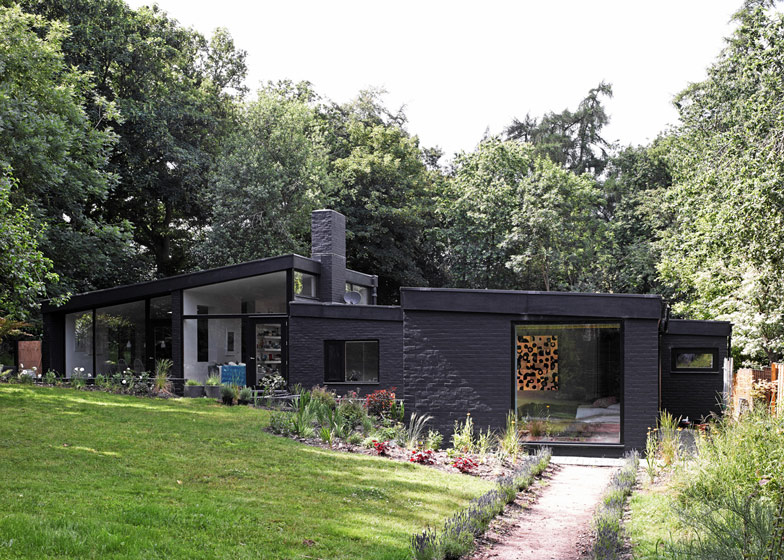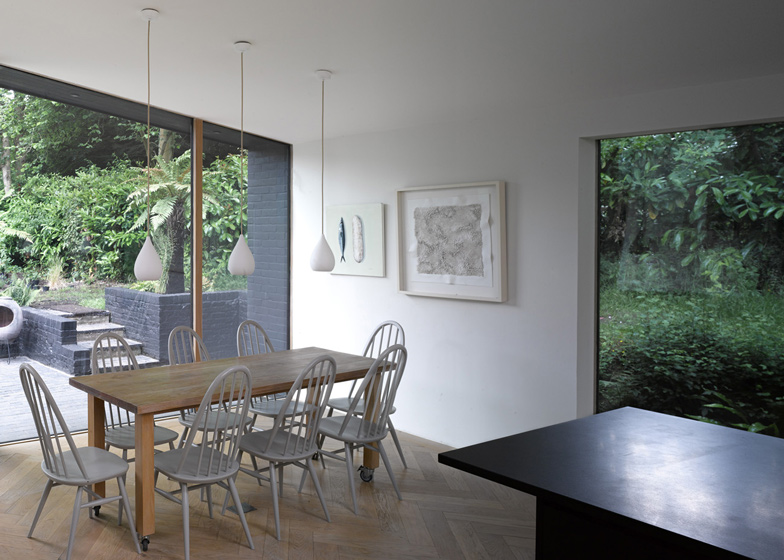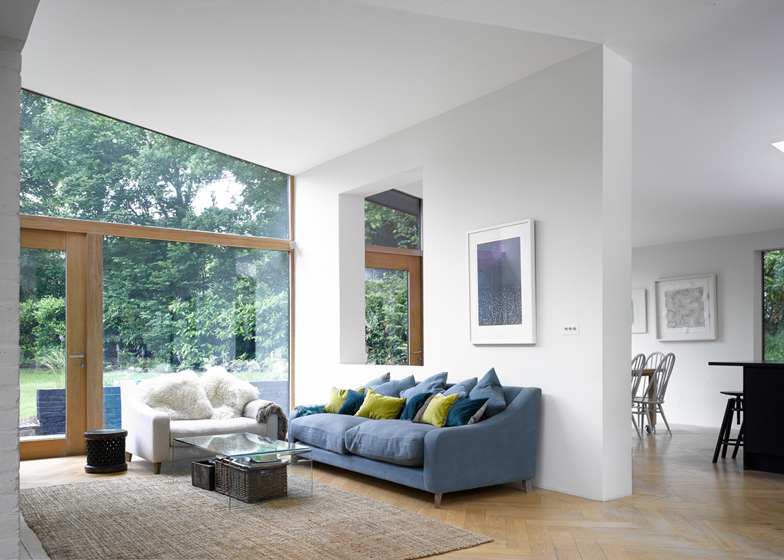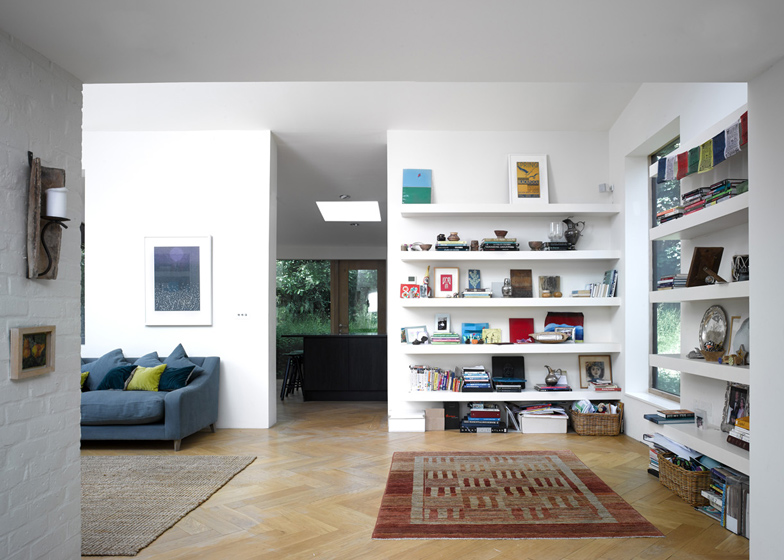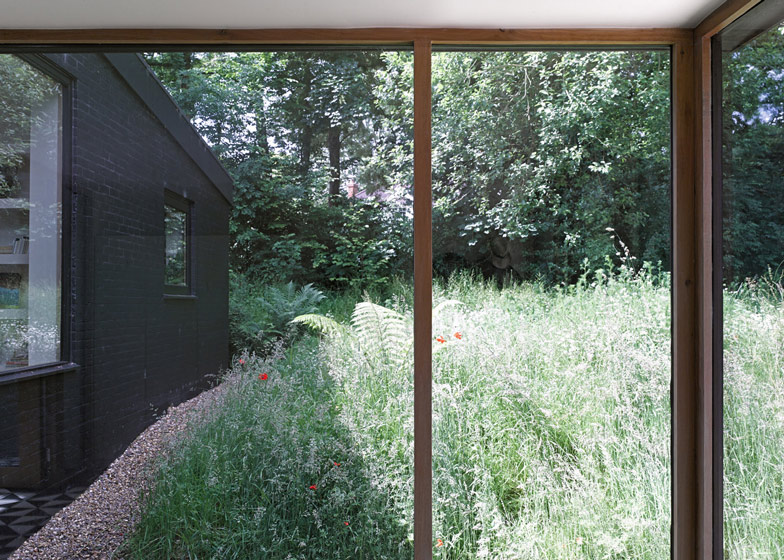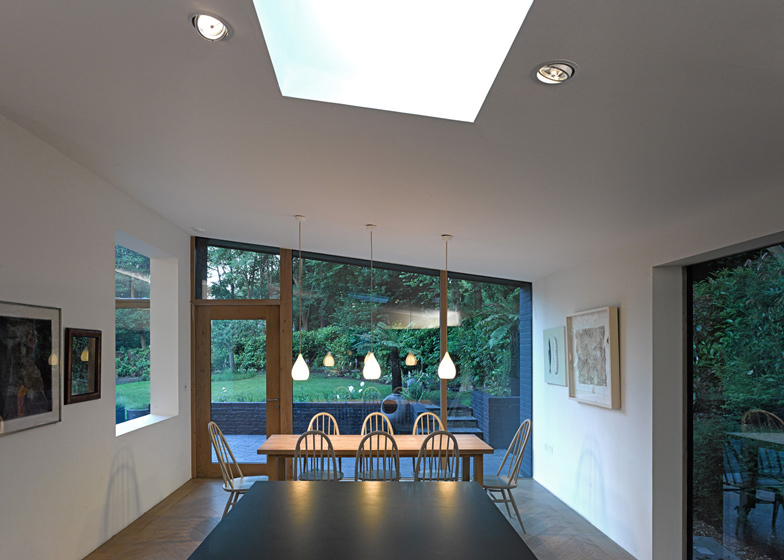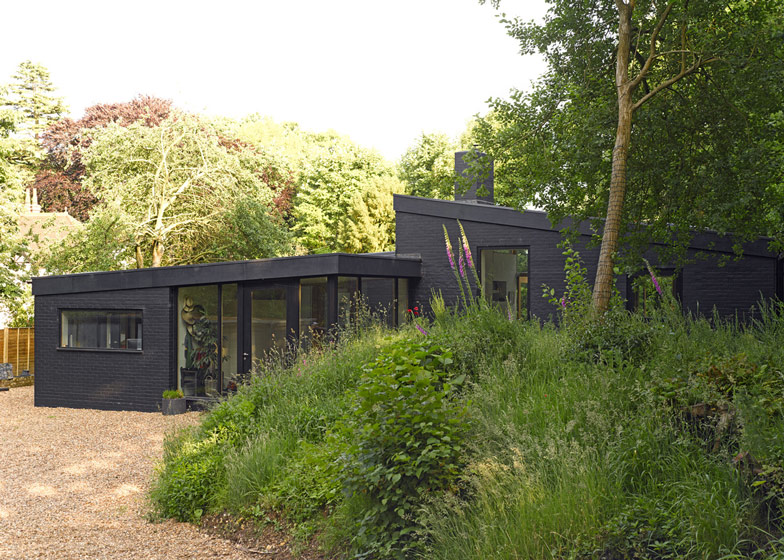Architects Takero Shimazaki and Charlie Luxton have renovated a 1960s house outside London to create a modern home that features black-painted brickwork, large windows and a new angular roof (photographs by Edmund Sumner + slideshow).
Now named Aperture in the Woods, the old house had been vacant for three years and was desperately in need of repairs, but Shimazaki and Luxton chose to retain and modernise as much as possible of the houses's original structure to preserve its simple character.
"Whilst the existing house was not a building of significant design importance, we felt there was a spirit there worth preserving and enhancing, being that of post-war British modernism," they said.
New brickwork was added and the whole house was then painted black to hide the junctions between new and old.
"It was clear that no matter how carefully we tried to match the brick a homogenous finish would not be achieved," said the architects. "Black was chosen to make the house recede into the shadows created by the surrounding woodlands."
The architects increased the angle of the roof to heighten the ceiling in the open-plan living room and create a row of clerestory windows.
More new windows frame vistas of a nearby church, but also offer residents views of a wildflower garden planted between the house and the forest.
"Without any curtains or blinds, the house is a transparent black viewing box, its external walls reflecting or absorbing the surrounding nature throughout the season," added the architects.
A glazed lobby provides a new entrance to the house. Inside, walls are painted white and are complemented by oak joinery and wooden floors.
Bedrooms sit on the opposite side of the house to the living areas, while a small office is tucked away at the back.
Photography is by Edmund Sumner.
Here's a description from the architects:
Aperture in the Woods, High Bois Lane, Buckinghamshire
A conversion of a derelict 1960s modernist house in the outskirts of Amersham, Buckinghamshire, the house has multiple aspects and is sited next to a local Church and surrounded by the Buckingham woodland.
Reflecting the economic downturn post 2008 and with a limited project budget, the design developed out of the architectural language of the original house; the owners and the architects working as much as possible to maximise the existing structure.
Most of the original brickwork was retained and added to. It was clear that no matter how carefully we tried to match the brick a homogenous finish would not be achieved. It was decided to paint the brick and the black was chosen to make the house recede into the shadows created by the surrounding woodlands. One half of the roof was raised to create a taller, sharper, pitch to the living room. Bedrooms were placed in the other half, retained at its original pitch, with an additional volume projecting into the garden to create a larger master bedroom. A new glass entrance lobby has also been added to open up the front of the house.
The family recently relocated from London to enjoy life within the Buckingham woods. The house is Phase 1 of 3 phases that will include additional spaces for quieter activities such as a study/guest house (Phase 2) and a green house (Phase 3).
Views of the house’s woodland surroundings were made through careful amendments to the existing openings, with additional apertures focusing on specific viewpoints including the church, immediate and distant woods and the newly planted wild flower garden to the front of the house.
Without any curtains or blinds, the house is a transparent black viewing box, its external walls reflecting or absorbing the surrounding nature throughout the season. The interior is realised in a light grey tone with all joinery including windows and doors in oak. The contrast of dark and light makes this building highly ephemeral and reflects the family’s aspirations for more dynamic living. The house is often used as a shelter for music events (with all the doors and windows open!), gatherings for local families and children as well as a quiet retreat for the family.
The project is a collaboration between Takero Shimazaki Architecture (t-sa) and Charlie Luxton.
Client: Jonathan and Ana Maria Harbottle
Architect: Takero Shimazaki Architecture (t-sa) and Charlie Luxton
Design Team: Jennifer Frewen, Charlie Luxton, Takero Shimazaki, Meiri Shinohara
Structural Engineer: milk structures
Approved Inspector: STMC Building Control
Main Contractor: Silver Square Construction Solutions Ltd
Single ply roof: Bauder

